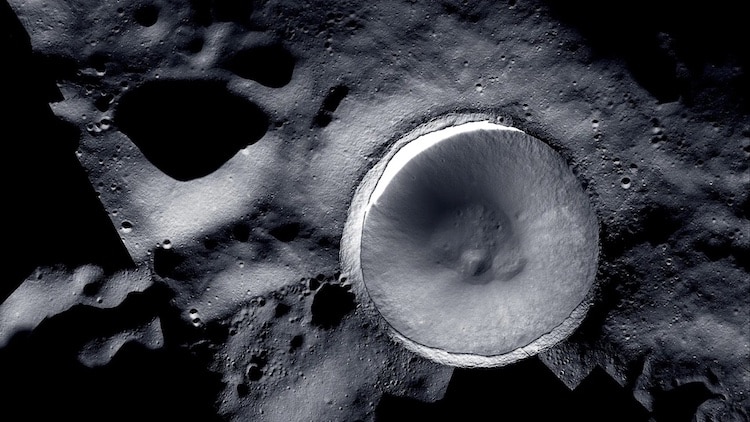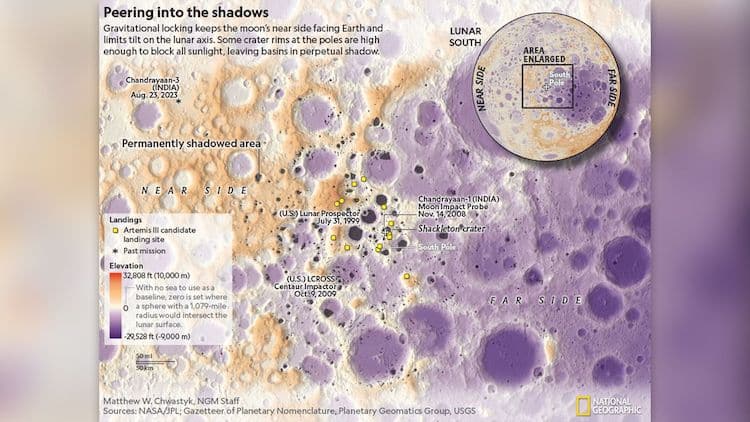
A new mosaic of Shackleton Crater as seen by NASA’s Lunar Reconnaissance Orbiter Camera and ShadowCam. (Photo: Mosaic by NASA, Korea Aerospace Research Institute, Arizona State University)
While the Moon is a constant presence in our lives, there’s a lot that scientists are still learning about it. The Indian Space Research Organization’s (ISRO) Chandrayaan-3 successfully landed on the lunar south pole with hopes of uncovering some of these mysteries, such as the possible presence of water ice in the large impact craters. While the lunar lander learns how to traverse the surface, NASA’s Lunar Reconnaissance Orbiter (LRO), which has been in space since 2009, shared new mosaic images of the lunar south pole that shed some light on one of its most prominent craters.
The mosaic was created using the Lunar Reconnaissance Orbiter Camera (LROC), and the NASA ShadowCam, which resides on the Korea Aerospace Research Institute (KARI) spacecraft Danuri (launched in 2022). The ShadowCam was developed by Malin Space Science Systems and Arizona State University and boasts light-sensitive capabilities that are 200 times as powerful as the LROC. These innovations help it capture details on parts of the Moon that receive no direct light and are perpetually shadowed. However, the ShadowCam cannot photograph the brighter areas of the Moon without creating a saturated image, so for those sections of the mosaic, the LROC was employed.
This mosaic highlights Shackleton Crater, a large impact crater in the lunar south pole that measures 12.4 miles across and 2.6 miles deep—over twice as deep as the Grand Canyon. Due to its depth, scientists believe there is a strong possibility water ice deposits could be found somewhere at this crater or in the surrounding area. NASA also shared a topographical map of the lunar south pole, which identifies the locations of ISRO’s Chandrayaan-3 landing, where Shackleton Crater is, as well as potential landing sites for the Artemis 3 mission, a manned mission scheduled for 2025. With so much research planned for this relatively unknown part of the Moon, there will surely be more to learn about its rocky surface soon.
NASA’s Lunar Reconnaissance Orbiter (LRO), which has been in space since 2009, shared a new mosaic image highlighting Shackleton Crater, a large impact crater located at the lunar south pole.

A map of the area of the lunar south pole near Shackleton Crater, including potential Artemis 3 landing sites (yellow). (Photo: NASA/PL; Gazetteer of Planetary Nomenclature, Planetary Geomatics Group, USGS, Matthew W. Chwastyk, NGM Staff)
h/t: [Live Science]
Related Articles:
A Crashed Lunar Lander Might Have Brought a Colony of Microscopic “Water Bears” to the Moon
Incredible Photo of JetBlue Flight Passing Over Blue Supermoon
India Makes History as the First Country to Land on the South Pole of the Moon
